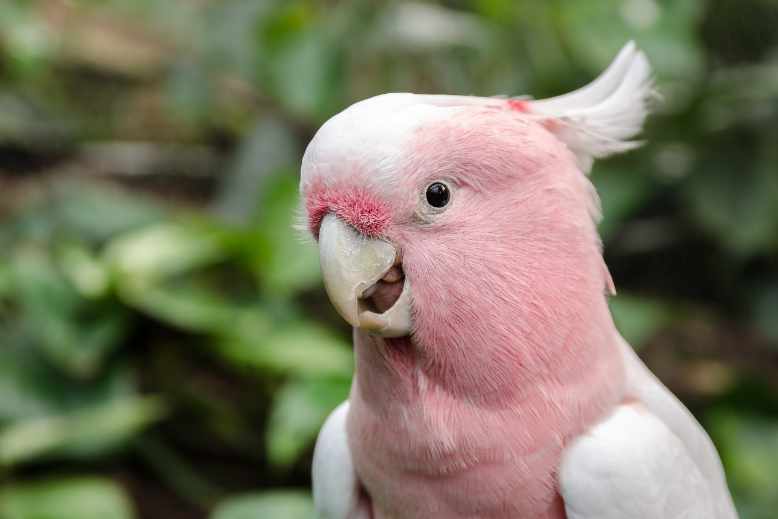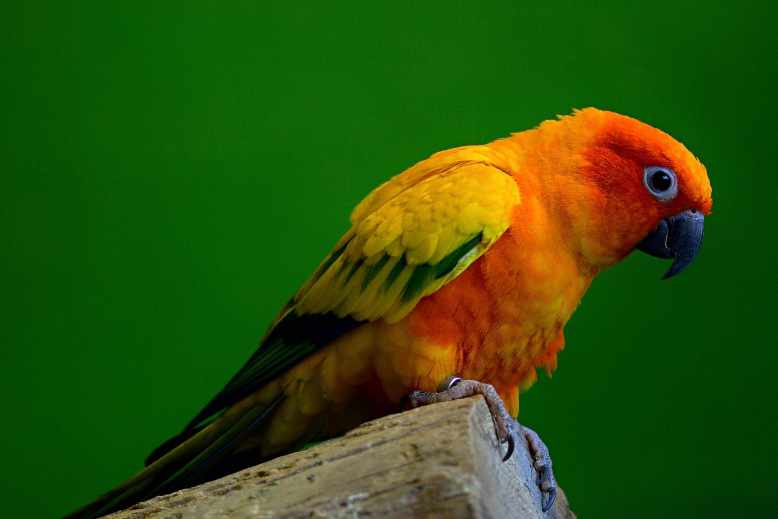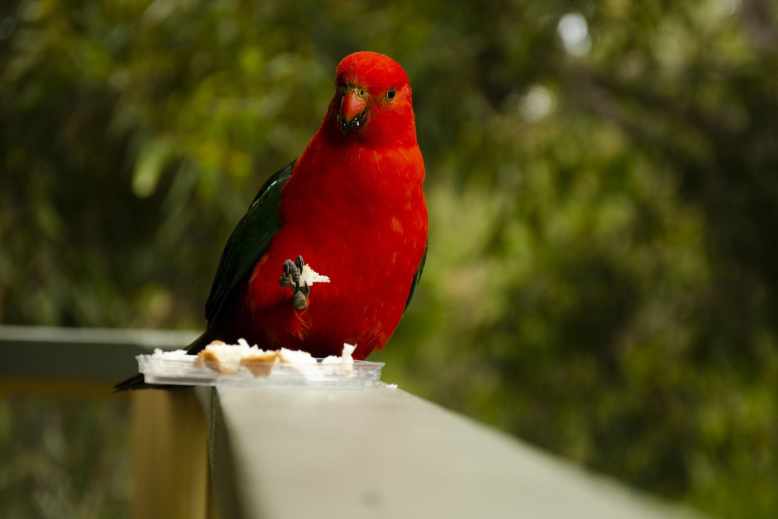Road trip with parrot tips: Do parrots like car rides? All birds have distinct dispositions. Some small bird species, such as budgerigar, finches, and canaries, can easily get anxious. They don’t like traveling and are better left home. While the big Amazon parrots are really interested in traveling, so they do like car rides. It helps them keep their mind active and entertained. And above all, traveling allows them to spend the whole day with their favorite human.
There are so many reasons that you may need to take your parrot out for a car ride. Maybe you wish to spend some fun time together on a family vacation. Or there might be a medical condition, and you may need to make your parrot travel to the vet as soon as possible. In such a situation, you have no choice but to hit the road with your parrot. Whatever the reason is, it is important to know that if your parrot can ride in a car or not. The answer to this question pretty much depends on your bird’s personality, species, and preferences. Some parrots are better travelers than others. Larger parrots, like most Amazons, tend to do better in cars than small birds. While smaller ones, like budgies, may suffer from anxiety.
Road trip with parrot
Traveling with a parrot or any other bird is different than traveling with dogs. It can be stressful to some extent. But with proper precautions and safety tips, you can turn it into a fun experience. So, to help you have a better road trip with parrot, here we have our top tips for enjoyable car travels. But first, let’s determine whether your bird is the one who likes the car rides or not!

Try answering the following questions:
- Is your parrot capable of adapting to a change?
Very young parrots are not accustomed to a routine. Their everyday feeding, hygiene, rest, and play patterns are not well established. So, traveling isn’t the best option for them. However, it is best for mature birds capable of adopting a change.
- How long can your lovely parrot stay comfortable in his cage?
If you have parrots for a while, you may already know about their mood swings at home. While traveling, you need to pay extra attention so that the bird doesn’t stress out. Plus, it is recommended not to take long trips with the bird unfamiliar with travel carriers.
- Are there any signs of motion sickness?
Yes! Just like us, parrots do experience motion sickness. Their brain receives conflicting messages from the eyes and the body, making them sick.
Start with short trips and gradually increase the duration to know if your parrot has this problem or not.
- Is your parrot healthy?
We totally agree with you. Traveling is stressful not only for owners but for their pets as well. It causes a major change in schedules, diets, and water consumption. And not all birds can cope up with this change.

Some birds begin to experience phobias, while others get extremely tired. So before planning an extended trip, it is better to take your bird to a qualified veterinarian for a complete health checkup.
This way, you will know about the health condition of your bird. Plus, it will help you prevent any serious problems caused by travel stress in an already ill bird.
- Is it legal to travel with the parrot on this route?
Surprisingly, this is a thing!
Some states don’t allow transporting birds of certain species. So, depending on the species of bird you have, it may not be safe to travel through such a route.
It’s your responsibility to check the routes before travel. Usually, interstate travels require a health certificate signed by a qualified veterinary doctor, while international travels are more complicated.
- Are the trip and destinations safe for your parrot?
Your pet’s safety should be your first concern. That’s why while traveling, make sure you are not taking your bird to extremely hot or cold climates. Always check your route before leaving and ensure that no disease outbreak is there to affect your beloved parrot.
- Will you be able to spare some time for your bird at the destination?
Even if you are traveling, your bird needs your attention. You will need to feed, play with, and clean the bird’s travel cage. If you cannot do so or these things will not work into your travel plans, then having a pet sitter is a better option.
Pre-trip tips
If you are sure that your parrot would be a good traveler, there is no reason to leave the amazing fellow behind. But if you are concerned, here are some pre-trip tips that you can follow to avoid any trouble on the day of travel:
- Slowly introduce your parrot to car rides.
Have you ever thought of running a marathon without trying to run a mile first? No, right?
Because no one would. The same concept applies to your parrot. Trying to take a bird on long-distance travels without acclimating it to small car rides first can be nothing but an unpleasant and stressful experience. Therefore, it is crucial to introduce your bird to short rides first to help them learn how to travel in a car without going bananas.
There is no harm in taking a small start. Just take your parrot and go for a small spin around the corner. It is not important how much distance you have traveled. The important thing is whether a bird is getting used to the new environment or not. Once the parrot is accustomed to riding along with you, you can gradually increase the travel duration.
- Have reservations
If you are traveling to a place where you need to arrange overnight accommodations, don’t forget to check that the pet-only rooms are nonsmoking rooms as well. Smoke can make your parrot really ill.
- Consult your veterinarian and schedule a health exam
Remember. Interstate traveling always requires a health certificate signed by a qualified veterinary doctor. This health certificate must be signed within 10 days before your departure.
If you are traveling within the state, it is absolutely fine to consult a vet and give your bird a health checkup. Plus, you can also talk to your veterinarian and ask about herbal prescription products to help your parrot deal with anxiousness and motion sickness.
If you have to travel by air, contact your airline and find out if there are any restrictions.
Things you need to enjoy a road trip with parrot
- Pick an appropriate travel cage.
If you have a large parrot, then the cage you have at your home will be humongous. Such cages will be too large for your car. But it is also not wise to take your bird on a ride without its carrier. Right?
To tackle the situation, you need a secure and durable travel cage. These cages are specially designed for travel needs. Most of them allow you to easily secure your parrot with seat belts to prevent any injuries. Plus, their small size makes them convenient for you to move your bird around in the car. Small cages give your bird a sense of security. There is also the convenience of taking your parrot with you while you stop at a point.
No products found.
Some other safety measures are as follows:
- Never travel with a loose bird in a car.
- Never leave an unattended bird in your trunk or car.
- You can cover the cage to prevent motion sickness.
- Do not fill the travel cage with swinging or hard objects. Such objects can cause injuries during a sudden stop.
- Do not use travel cages for daily use, and NEVER force your bird in the cage.
- Travel with a bird having well-trimmed wings to avoid any escape.
- Take precautions, so you don’t have to lose a bird.
- Bring plenty of food and water.
Proper hydration is necessary for you and your parrot. So bring plenty of food, water, and treats for your parrot. But do not overfeed the bird during or before the trip.

Just because you are on vacation doesn’t mean you can feed your parrot anything you want. Don’t offer the wrong meals. Foods containing fats, sugars, and fast food are extremely unhealthy for the little birdie. Try your best to feed the bird a regular diet because a sudden change in food during the stress of travel can lead to severe digestive issues. If you are planning to introduce some new treats, include them in your bird’s diet several days before the trip to prevent digestive concerns.
You can use a water bottle instead of cups to keep the cage dry. But don’t forget to teach your bird how to use a water bottle. You can also offer some juicy fruits to keep your birds hydrated. Just chop them into small pieces, and you are good to go!
Some other helpful hints are:
- Prefer deep food cups for traveling. Keep the cups secured to the cage
- Use non-breakable jars to store food in them.
- Provide your parrot one dish of regular diet and one of the fresh vegetables.
- Use a seed guard to avoid the unwanted mess.
- Put plenty of ice in a cooler and use it to store fresh foods
- Try sticking to your usual feedings schedule.
- Makes frequent stops and check out your bird.
- Avoid traveling for over 2 hours in a single go.
- Most birds don’t like to eat in moving vehicles. Stop if you want to give your parrot some water and food.
- Make sure the car has an appropriate temperature.
Now that you and your bird both are ready to have a fun time together, make sure you do not forget to check the car temperatures. The car temperature should be around the temperature of your home. Ideally, neither too cold nor too hot.
- If you are planning a trip on a hot day, cool the car before bringing your bird in.
- Avoid making your bird sit in direct sunlight.
- Do not leave your parrot alone in the car on a warm day.
- Never put your parrot’s carrier directly under the air conditioner or heat vent.
- If the air conditioner is not available or is out of order, simply wrap an ice pack in a hand towel and put it inside the travel cage for cooling.
- Place a damp towel over the travel cage to provide some warmth. Covering the carrier can help you calm your nervous birds.
- Consider Anti-stress bird supplements.
Bird anti-stress supplements significantly reduce stress levels and prevent stress sickness. You can consider giving such supplements, minerals, and vitamins to your bird before a car ride. You can also use some parrot calming formulas and calming herbs to relieve your parrot’s nerves while traveling.
- Plan ahead for emergencies
We genuinely hope there will be none. But it is always better to be safe than sorry. So must include a small first aid kit to tackle emergencies on the go. It is highly appreciated to have the contact information of veterinarians located along the way.
- Look out for the signs of motion sickness.
Parrots that are not used to car rides or are going on a long drive can get motion sickness. Following are some symptoms of motion sickness:
- Acting stressed and huddling behavior
- Weakness and loss of balance
- Ruffled feathers or dropped wings
- Aggression and open mouth breathing pattern
- Uncharacteristically passiveness
- Inactivity and trembling
Of course, these aren’t the only indications of motion sickness. But if any of these symptoms are visible, take a break and try to calm your parrot. Talk to your bird and give the little fellow some fresh air.
If the symptoms remain, call your vet and seek their advice.
Hit the road!
Now that you are well aware of all the safety precautions, it’s time to hit the road. Use these tips to make your upcoming adventures more interesting.
Start with small car rides, get a travel cage, look for any symptoms of diseases, keep your parrot hydrated, and don’t forget to have some fun.
Last update on 2023-07-31 / Affiliate links / Images from Amazon Product Advertising API
